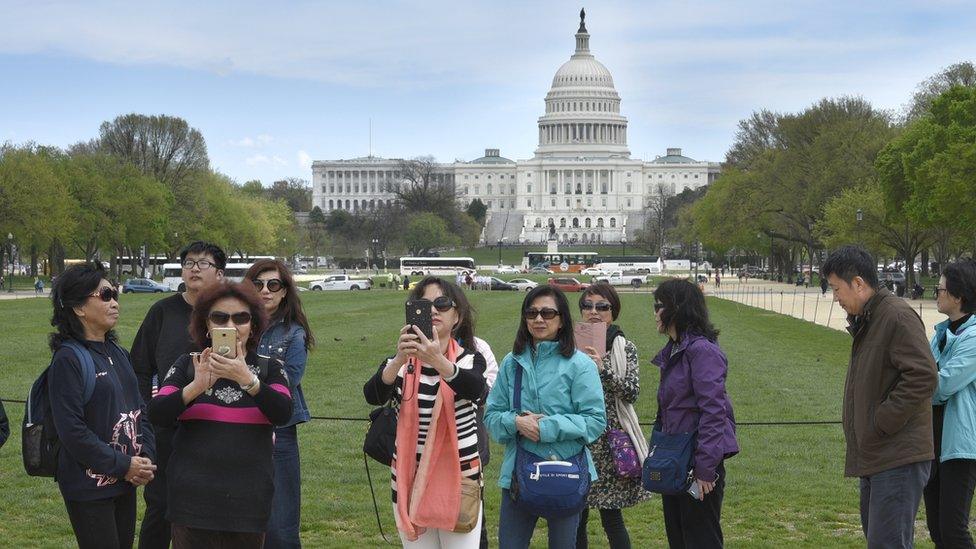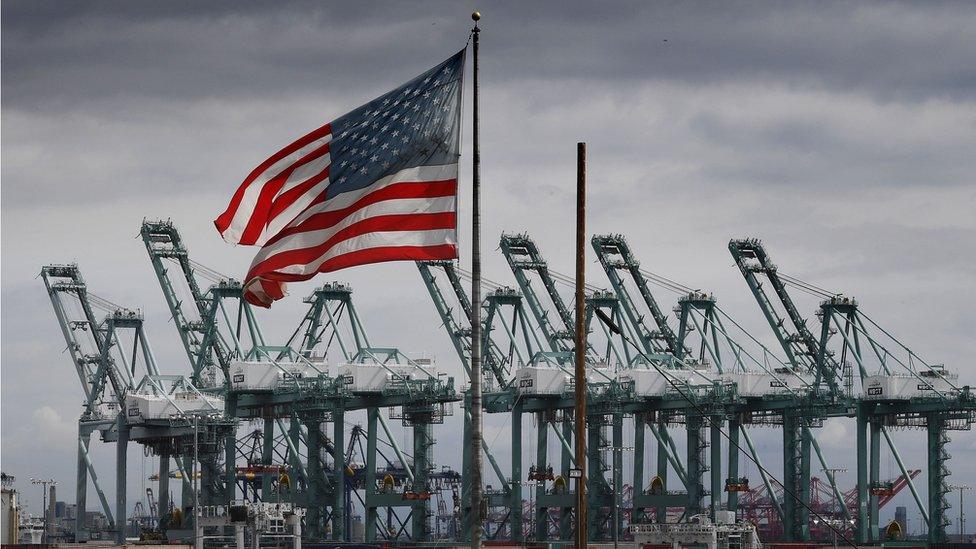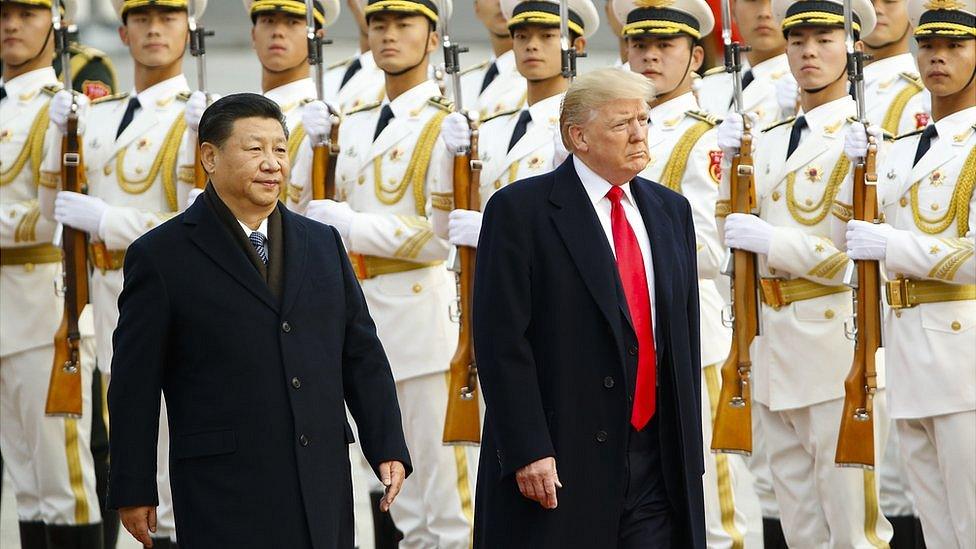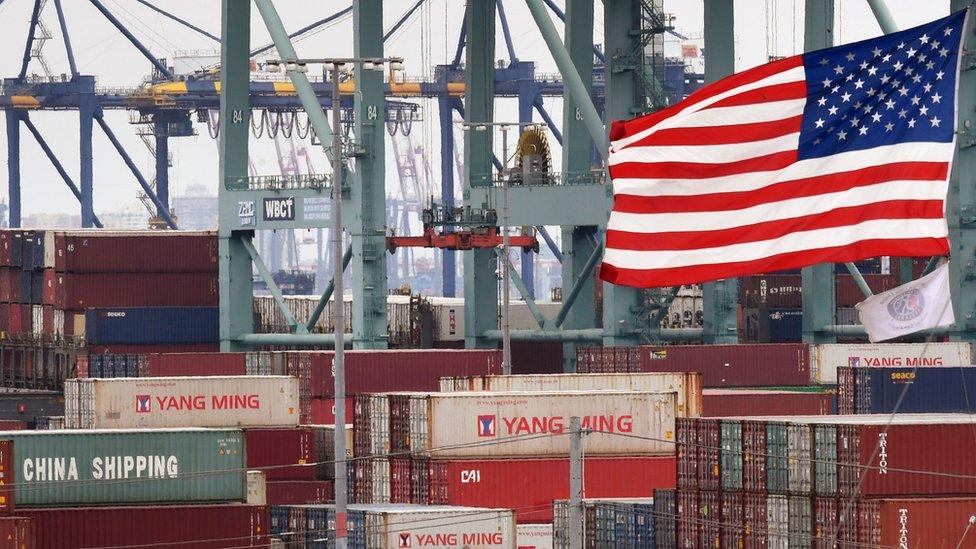China issues US travel warning over 'shootings'
- Published

China has warned its citizens to "fully assess the risks" of travelling to the US given recent "shootings", as tensions between the superpowers rise.
The Ministry of Culture and Tourism warned of threats such as robbery and gun violence, state media said.
China's foreign ministry also said US law enforcement agencies have been "harassing" its citizens with interrogation.
It comes amid a power struggle between China and the US over trade.
The US reignited the trade war with tariff hikes in May, and broadened the conflict by blacklisting Chinese tech giant Huawei.
Both sides have imposed tariffs on billions of dollars of each other's goods over the past year, disrupting trade and hurting the global economy.
What exactly did China say?
"Recently there have been shootings, robberies and thefts happening frequently in the US. The Ministry of Culture and Tourism reminds Chinese tourists to fully assess the risks of going to the US for travel," said an anchor on Chinese broadcaster CCTV, according to a Reuters translation.
Foreign Ministry Spokesperson Geng Shuang told a press conference, external the warning was "necessary in light of current circumstances".
"For some time, US law enforcement agencies have been harassing Chinese citizens with interrogation upon entry or exit, and on-site interviews, among other forms," he said, according to China's foreign ministry website.
"Therefore the Ministry of Culture and Tourism issued the tourism reminder, and the Ministry of Foreign Affairs and the Chinese Embassy and consulates in the US decided to issue the safety reminder to raise safety awareness. That, I believe, is what a responsible government should do."
What's behind the US-China tensions?
The US accuses China of playing unfairly in trade for years and says tech company Huawei poses a risk to its national security.
The Chinese refute this and increasingly see US moves as an attempt to curb China's growing global influence.
Only recently, the world's two largest economies seemed to be nearing a deal. But while negotiations were still ongoing, the Trump administration accused China of reneging on its promises and more than doubled tariffs on $200bn of Chinese goods.
It also added Huawei to a list of companies that American firms cannot trade with unless they have a licence.
China has retaliated with some tariff hikes of its own.
Why the US-China trade war will hit most of our pockets
Even though there are no known talks scheduled for now, Chinese President Xi Jinping and US President Donald Trump are expected to meet at the G20 meeting of leaders in late June.
Analysts are not optimistic about the prospect of a breakthrough, particularly after both sides recently pointed fingers at one another for the trade impasse.
- Published31 May 2019

- Published30 May 2019

- Published22 April 2019

- Published16 January 2020
